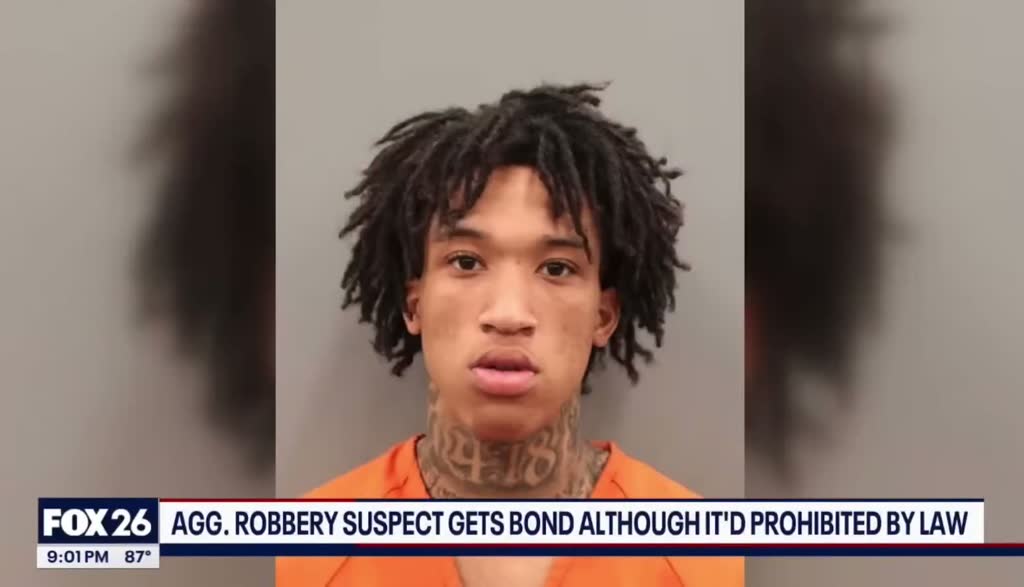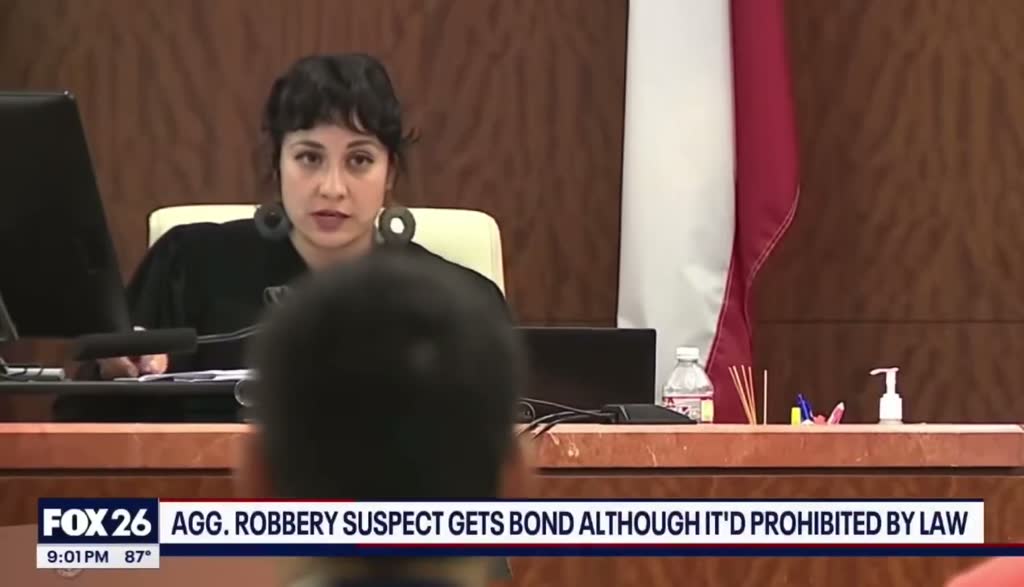A Houston judge has granted bond to a violent repeat offender, raising concerns about public safety and the justice system’s handling of repeat crimes.
In the quiet corners of Harris County, where the wheels of justice turn slowly and often out of sight, a recent judicial decision has sent shockwaves through the community, reigniting a fierce debate about the role of judges, the efficacy of our bail system, and the fundamental right to public safety. At the heart of this controversy is a Houston judge who, against the counsel of prosecutors and the public’s best interest, granted bond to a violent repeat offender, allowing him to walk free and, in doing so, potentially endangering the very community he is sworn to protect.
The Defendant and His Disturbing History
To understand the gravity of this decision, one must first look at the defendant’s record – a long and disturbing history of violence, disregard for the law, and a proven inability to abide by the terms of his release. This is not a story of a first-time offender or a minor infraction. This individual, whose name we will not use to protect the victims, has a rap sheet that reads like a chronicle of criminal behavior.
His past includes convictions for aggravated assault with a deadly weapon, robbery, and multiple instances of domestic violence. He has a history of violating protective orders and failing to appear in court, demonstrating a clear pattern of non-compliance with the legal system. Each time he was released, he seemingly re-offended, creating a cycle of violence that has left a trail of traumatized victims and a community on edge.

The Courtroom Drama and the Judge’s Decision-Houston
The scene in the courtroom was a familiar one for veteran prosecutors. They laid out the defendant’s history in stark detail, presenting a compelling case for keeping him incarcerated. They highlighted the violent nature of his most recent alleged crime and his long history of recidivism. They argued that he posed a clear and present danger to the community, and that no amount of bond could mitigate that risk. The victim, through a victim’s advocate, expressed a profound fear for their safety, a fear that was both understandable and entirely justified given the defendant’s past.
Yet, despite this overwhelming evidence and the impassioned pleas from the prosecution and the victim, the judge chose to set a bond. The amount, a figure that many would consider paltry given the severity of the charges, was set, and the defendant was released from jail. The decision was met with a collective gasp of disbelief in the courtroom and a wave of outrage from legal experts and community leaders.
What Factors Led to This Decision?
The question on everyone’s mind is: why? Why would a judge, entrusted with the solemn duty of upholding the law and protecting the public, make such a controversial and, many would argue, dangerous decision?
Judges in Texas have a great deal of discretion when it comes to setting bail. They are tasked with balancing the defendant’s right to freedom before trial with the public’s right to safety. This is a delicate and often difficult balance to strike. However, the law also provides clear guidelines for judges to consider, including the nature of the offense, the defendant’s criminal history, and the potential danger they pose to the community.
In this case, it appears that these factors were either ignored or given insufficient weight. Critics of the judge’s ruling argue that the decision was a gross misinterpretation of the law and a profound failure of judgment. They point to the defendant’s history of violence and his proven inability to comply with court orders as clear indicators that he should not have been released.
The Broader Implications of This Ruling
This is not an isolated incident. The Houston judge’s decision is a symptom of a much larger, ongoing debate about bail reform and the criminal justice system. Proponents of bail reform argue that the current system disproportionately affects the poor, keeping people in jail simply because they cannot afford to pay their way out. While this is a valid concern, the case of this violent repeat offender highlights the dangerous side of a system that prioritizes a defendant’s freedom over the community’s safety.
The Dangers of Releasing Violent Offenders on Bond
When a judge grants bond to a violent repeat offender, they are essentially rolling the dice with public safety. The immediate danger is that the defendant will re-offend while out on bail, potentially causing further harm to the community or intimidating witnesses. There is also the very real possibility that they will fail to appear for their court date, forcing law enforcement to expend valuable resources to track them down.
The long-term consequences are just as troubling. Such rulings erode public trust in the judiciary and the entire criminal justice system. When people see violent criminals being released back into their neighborhoods, they begin to lose faith in the system’s ability to protect them. This can lead to a sense of powerlessness and a belief that the system is broken and unjust.
A Call for Accountability and Change
The case of the Houston judge and the violent repeat offender is a stark reminder that the decisions made in our courtrooms have real-world consequences. It is a powerful argument for increased accountability for judges who make questionable rulings that endanger the public. It is also a call to re-evaluate our current bail system to ensure that it strikes a proper balance between a defendant’s rights and a community’s need for safety.
The public has a right to demand more from its judiciary. We need judges who are not only learned in the law but who also possess the wisdom and judgment to make decisions that protect the vulnerable and uphold the principles of justice. The story of this Houston judge is a cautionary tale, a painful lesson that a single judicial ruling can have far-reaching and dangerous consequences for an entire community. It is a story that should serve as a catalyst for change, a plea for a more just and safer future for all.

